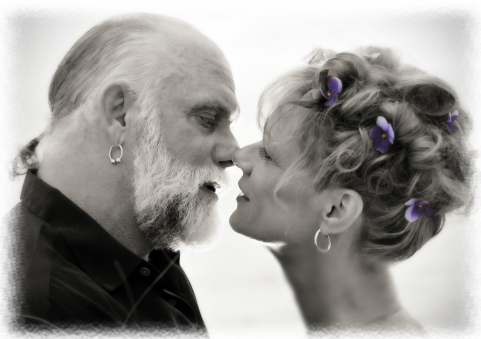|
|---|
Monday, July 13, 2009
 Among other things, I talk about social technology on this blog. I've long been curious about the multiple uses and applications of Q&A social media. These "advice" services have grown dramatically in recent years. The ability to get an expert opinion for free is tempting. But you can even pay to get answers on some sites promoting "experts".
Among other things, I talk about social technology on this blog. I've long been curious about the multiple uses and applications of Q&A social media. These "advice" services have grown dramatically in recent years. The ability to get an expert opinion for free is tempting. But you can even pay to get answers on some sites promoting "experts".
Every popular Q&A site has a different value-add, a unique offering. Aardvark, a fairly young Q&A service, was recently talked about in The New York Times. The distinguishing feature of Aardvark is that the application asks only a "friend" or "friend-of-friend". According to the service:
A real conversation with a friend (or friend-of-friend) can be much more helpful than searching the web — all the knowledge and experience in people’s heads can’t be put on a web page!The idea is that if this person is connected to you somehow they will be more reliable and more relevant. But people who ask questions on Yahoo! Answers, the most popular Q&A social media site on the Internet, get a faster response because there are so many people online to answer the question, and the archives cover a vast storehouse of previously answered questions.
Q&A sites are interesting as social media experiments. Typically, there is a reputation system in place. Users who answer more questions and receive higher ratings from their peers gain more exposure. In other words, power users have more influence on the site. This happens to be true of all social technology.
Tonight, while I was on the Yahoo! search page, a strange link appeared up in the News section. "What came first, the chicken or the egg?" was the "news story" and it directed me to Yahoo! Answers. Once I was there, I read the question, then the answers; and I "friended" a couple of the people whose answers I liked. (BTW, this question crops up regularly on Yahoo! Answers simply because it cannot be resolved).
Within seconds I received an email in my inbox stating someone had invited me to answer their question. I went to the site and the question was this, written by a 15 yr old:
Am I too pessimistic for my age?
I'm 15 and I don't believe inI had nothing to do, so I thought I would answer her question. Why not? At her age, I could have used an answer to that question.
-God
-heaven
-hell
-true love
-fate
-destiny
-love at first site
-the perfect man/woman
-soul mates
-salvation
-miracles
honestly, there's no solid proof that any of these things exist and I just can't find a way to let myself believe in them.
So I kinda feel...empty.
Here is my reply:
You will feel this way your entire life. Some days you will forget, but you will always return to this feeling.The unique ability to tap into a diversity of opinions is the essential character of the Internet. Q&A sites are popular for this reason alone. A service like Yahoo! Answers or Aardvark can really help a person. You know the feeling of wanting desperately to know the answer to something.
Every human being feels this way. It is part of what it means to be human.
Don't get overly hung up on it.
Use the feeling of emptiness as a positive motivation to make your life mean something.
If you start out with nothing, then you always have the potential to be something.
If on the other hand you start out with everything, you have everything, feel everything wonderful, then what is there left to do?
So emptiness is good. Even if it feels lonely sometimes, it's good.
I look at this feeling of emptiness, loneliness, boredom, etc. as an advantage.
When there is less water in the cup, there is more room. Beliefs are like stones in a cup of water, the more stones, the less room. So not having set, fixed, rigid beliefs actually turns out to be a good thing!
Feelings come and go. You'll always have time on your hands. How will you spend it?
That's up to you.
Your optimism or pessimism will usually depend on something. Sometimes we think of things in a positive light, sometimes in a negative light. Some people are pessimistic by temperament; others optimistic.
There is nothing wrong with being pessimistic. And, on the other hand, optimism is not always good.
You may not have a belief system now, but someday you will. You will have a belief system if you're religious, secular, or not thinking about "existence" at all. You will come to believe in certain things.
You just haven't lived long enough to believe that strongly one way or another about these ideas.
Proof is always riddled with error. You will never have proof, but you will come to believe in things.
You're telling a story about the world and your experience in the world.
It will always be a story.
"Every man believes he's in possession of the truth."
One of my favorite writers said that. Robert Musil, in his opus, The Man without Qualities.
If you want to exercise your mind, read that book.
I enjoyed writing this response to an anonymous 15 yr old. I don't think I'll spend the rest of my days answering questions on Yahoo! Answers, but for a change of pace, it was a worthwhile experience.
We enjoy helping each other out. Especially when we get to share our wisdom and make a sincere connection.
You can see how other people responded to her question here.
IMAGE FOUND AT [DAILY DOSE OF IMAGERY]
0 Comments:
Subscribe to:
Post Comments (Atom)














